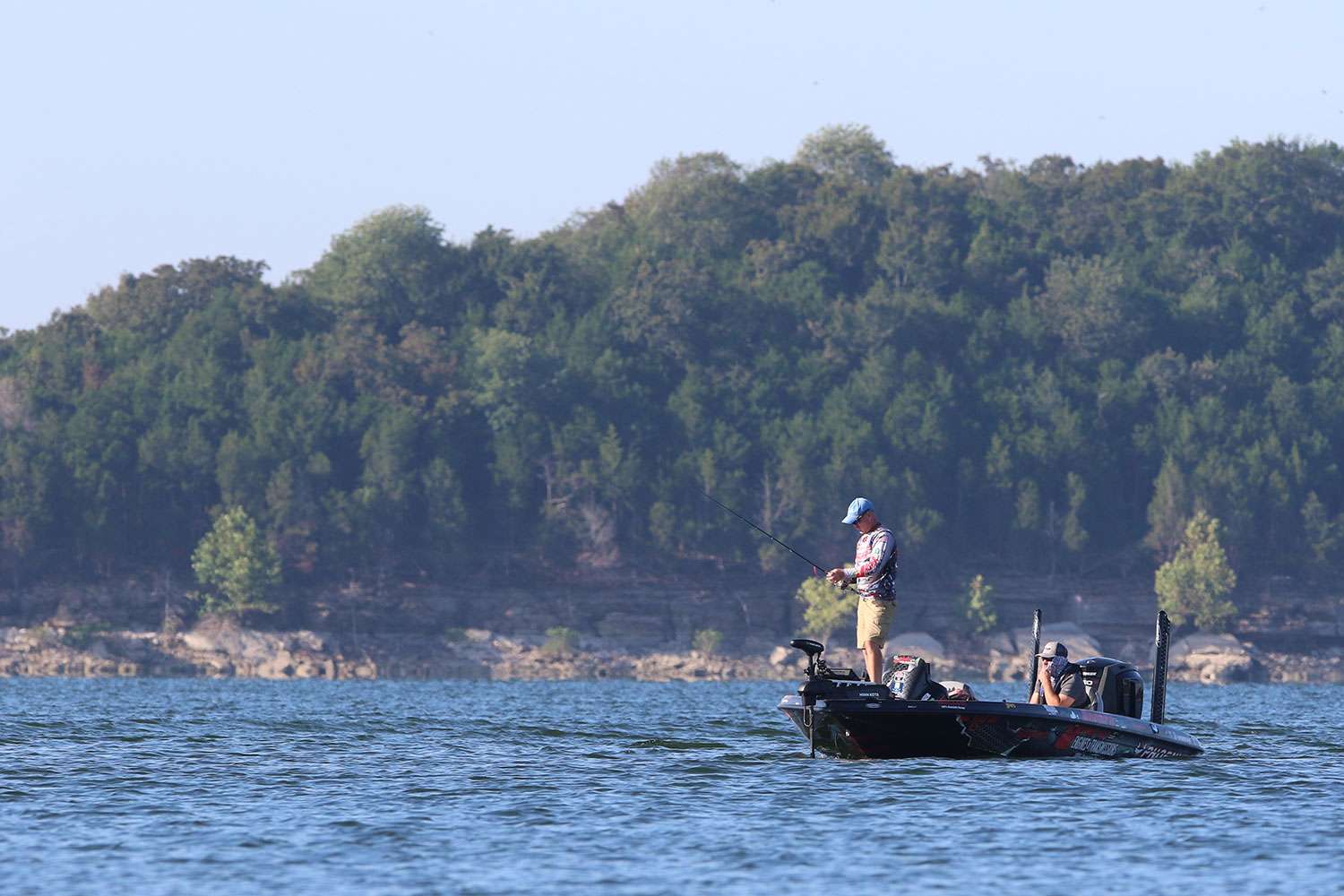
In nearly two decades of competing as a professional angler, I have seen many of our best fisheries change as the result of both accidental and purposeful introduction of invasive species. There are now snakeheads in the Potomac, zebra mussels in a variety of lakes, blueback herring throughout the Southeast and hydrilla where it didn’t exist before – and don’t get me started on Asian Carp.
Sometimes, the effects – at least on the surface – seem largely positive. Bluebacks fatten fish up. Zebra mussels filter the water. Grass creates more habitat. So why shouldn’t we engage in a little biological tinkering here and there to improve our fisheries? After all, I’d love to have big Florida strain largemouth in my backyard.
Well, first of all, it’s illegal. People have been tried and convicted for introducing invasive species. For example, in 2015 two Smith Lake guides were charged with using bluebacks during striper charters. Since then, the lake has changed substantially due to the illegal introduction of that species. It’s easy to understand why someone might want those prolific baitfish in the lake because where they exist the fish tend to grow and get heavier.
On the other hand, bluebacks also change the nature of the fishery. It makes the bass hard to catch any other time than in the spring during the spawn. The bass become roamers. I’m not a scientist, but I also know that it tends to decimate the population of other baitfish, like shad, with various ripple effects
On my home lake of Table Rock, I’ve seen the fish populations change over the past decade, and not always for the better. We have all three major species of bass – largemouth, smallmouth and spots – and the food chain balance has been upset. While it’s fun to go out and catch a bunch of spots, they’re not getting any bigger because the food sources are completely taxed. I’d love to have some spots in there like those big ones on the Coosa River, but the introduction of another major predator could bring everything crashing down. The Alabama Bass, as they are now officially known, often overpopulate when they are transplanted outside of their native range, becoming stunted and outcompeting the spotted bass and smallmouth, leaving the overall fishery in worse shape.
Many of us have had an unusual amount of free time over the past few months, and we’ve dreamed up some projects that we might never have undertaken in the past. Still, I urge you, no matter what, not to take it upon yourself to make livewell transfers from one system to another. There is a natural balance to things that we can’t necessarily see, and taking one link out of that chain, or adding a new factor, can ruin everything. If you’re not a duly authorized fisheries biologist, you should leave well enough alone.
That doesn’t just apply to intentional transfers. I’m talking about unintentional movement of invasives as well. The states and regions that have been most successful at controlling the invasives are the ones that implement “Clean, Drain and Dry” guidelines. They were hard for me to grasp at first because they just seemed like a waste of time, but now I see their importance. Furthermore, the process literally takes just a few seconds, and it’s a good routine to get into: pull the drain plug, empty your livewells and make sure that there’s nothing hanging from your trailer. We don’t need giant salvinia or starry stonewort hitchhiking their way from lake to lake on your trailer. You can do it all while you’re attaching the tie downs on your boat at the end of a day of fishing.
Again, I’m not a biologist, but I’ve seen whole systems get thrown out of whack by the simplest of changes, either man-made or naturally occurring. We tend to focus on the situations where fishing improves, and that does occur in some cases. On the other hand, that’s a remarkably selfish perspective. What’s good for us is not necessarily good for everyone. Additionally, for every case where things are better, there are examples where things get much worse. Backyard biology is bad for all of us.





